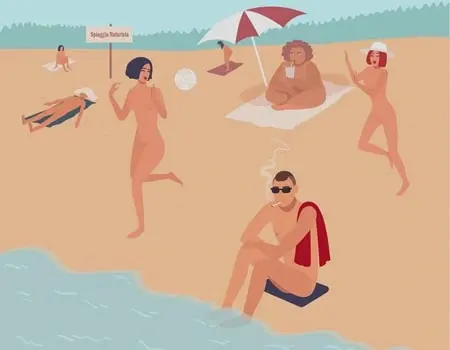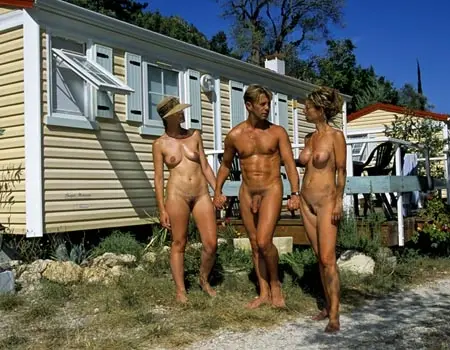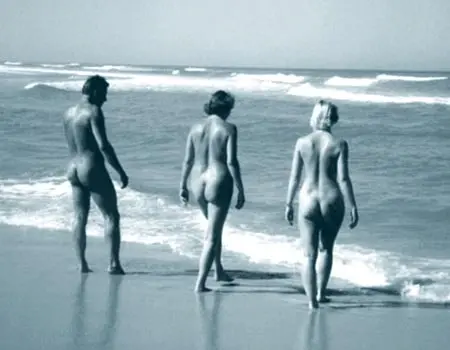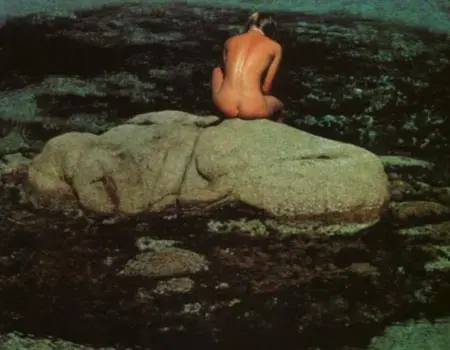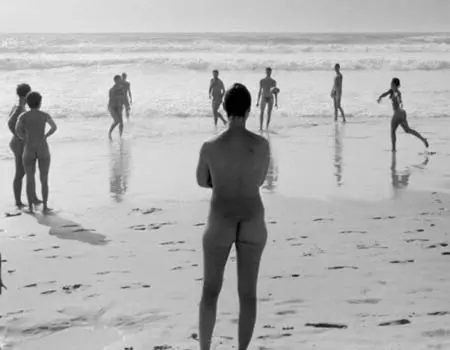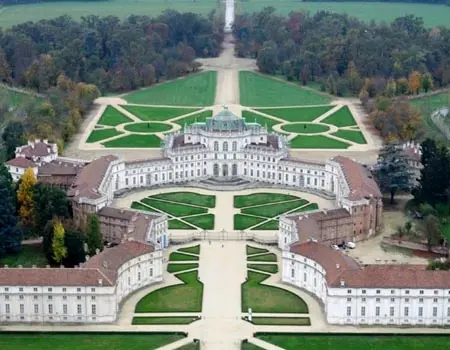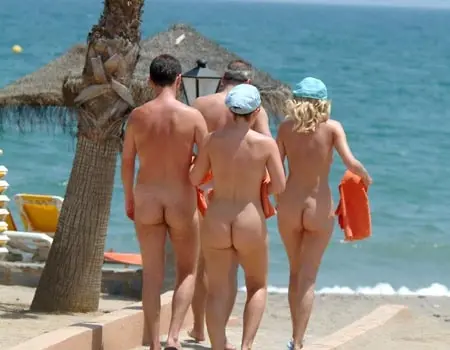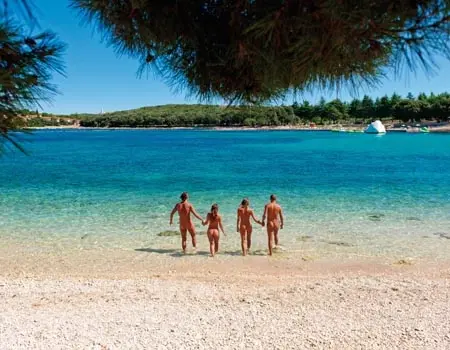The ethics of food and nudism
Science says, "we are what we eat". In other words "we are the results of how and how much we eat".
As everyone knows, food is just as important to us as the air we breathe. Indeed it is indispensable to life. However humans must eat without exaggerating to avoid the extremes of bulimia (eating too much) and anorexia (eating too little). Eating must be ethical in its compliance with the principles of nature. Nature tells us to nourish ourselves sufficiently without taking too much or too little in order to avoid the precipice of self- destruction that occurs in the two aforementioned pathologies.
As everyone knows, food is just as important to us as the air we breathe. Indeed it is indispensable to life. However humans must eat without exaggerating to avoid the extremes of bulimia (eating too much) and anorexia (eating too little). Eating must be ethical in its compliance with the principles of nature. Nature tells us to nourish ourselves sufficiently without taking too much or too little in order to avoid the precipice of self- destruction that occurs in the two aforementioned pathologies.
The older generations know the ethics of food because they ate what they needed and did not waste anything. This obviously does not refer to the people who barelysurvived or literally died of hunger. In this regard, and with due consideration to the problem of world hunger (about which I will give significant statistics later), we cansay that today the masses are increasingly aware that inadequate exercise, excessive eating and bad food choices are the number one causes of the diseases of our century.
Every year 50,000 people die in Italy alone because of obesity. On the contrary the World Food Organization (the WFO, which deals with world hunger) states they are 854 million desperate people suffering from malnutrition and inadequate nourishment in the world today.
These statistics show that the problem of hunger arises not only from natural causes (adverse climatic and environmental conditions), but above all from situations caused by erroneous social, economic and human activities such as armed conflicts, epidemics, forced exoduses of entire populations, environmental deterioration, ecological disasters, etc.
And to think that our planet produces foodstuffs of sufficient quantity and quality to feed the entire world population!!! Furthermore, biofuel is being extracted from corn and other crops, which drives up their cost, decreases their supply on the food market, and causes more hunger among peoples who are already indigent.
Most distressing is possibility production of biofuel will increase significantly by 2025 causing the number of people who might have to fight hunger to increase from the current 854.000.000 to 1.200.000. The problem of world hunger is very difficult to solve because it involves many factors, some of which are objective (climate) and others that are subjective (selfishness and economic interests).
The result? Though enough food is being produced to feed everyone, it is not fairly divided. Consequently there is an extreme abundance of food in wealthy countries, food, which is partially wasted, and an extreme scarcity of food in poor countries. It is interesting to note that, regarding waste, Italian families end up not eating 10% of the food they purchase and considerable amounts of food ends up in the garbage can, including meat, milk, eggs, cheese, vegetables, fruit, etc.
So, how does naturism respond to this socalled ‘ethics of food’ concept? First of all, we start by saying that the issue of food has been one of the principles that informs naturism philosophy. Naturism has always studied and determined all eating habits that are harmful to human health.
Naturism has and continues to oppose the sophisticated diets of our times by choosing simple and natural foods (without going to extremes of certain vegetarians). We watch our calorie intake. However, since naturists, are not utopians, we know very well that eating is a pleasure… as long as it does not exceed the limits of tolerance ordained by nature. Respect of these limits compensates us with the possibility of living better and longer. Proper amounts of food, adequate physical exercise and avoiding smoke and alcohol (except the classical glass of wine at meals) are the basic principles we apply in our practice of the naturist ideal.
Eating well and avoiding excess is what we do in the naturist world, and this has raised naturists’ quality of life. Naturism has not only freed us from an ancestral taboo (nudity) but the mere state of being nude with other nude people has automatically taught us to respect our bodies and the bodies of other people; especially when we are nude to together. Clothing can hide or camouflage a paunch that is the sign of a disorderly lifestyle (unethical eating habits). But when you are nude, you cannot hide it.
Therefore it is clear that when speaking about the ethics of food, the function of which must be the one contemplated by nature, the naturist movement speaks about ethical nudism (=naturism) when it coincides with the ethics of nature. Here I would like to reiterate that the ethics of nature are not abstract norms but the norms of a "moral" natural law that serves to “govern” the world of the senses and make it work optimally.
Accordingly, nudism is ethical when its directives respect the ethics of nature for the purpose of allowing the human machine work as efficiently as possible; allowing an individual grow psychologically and culturally; reconciling humans with the environment in which they live while recuperating our knowledge about nature; renouncing aesthetic judgments of others and accepting all individuals as they are; unveiling genitalia in order to eliminate or reduce the sexual anxiety produced by visual deprivation (especially in males); deflating the subconscious conditionings that normally hinder acceptance of one'sm own nudity and that of others.
Precisely because of its humanistic values (the centrality of humans and their values) and humanitarian values (solidarity with one’s neighbors and the love of nature) naturism, i.e. ethical nudism, encompasses all the instances which modern sociological research is bringing to the awareness of the collective consciousness. Until recently these instances were darkened by the illusion that one can live without rules. But if certain rules are not respected -- such as how to eat properly -- people resort to “miracle” diets that invariably do not work.
The truly miraculous formula consists of a lifestyle built on behaviors that comply with natural laws and order to recover our environmental and moral habitat, which have been heretofore been degraded. Such a recovery would allow us to live in a world that is biologically healthy (through temperance in eating), and psychologically healthy (learning to control our instincts). This is possible only by following the natural restraints innate in the practice of nudism.
Every year 50,000 people die in Italy alone because of obesity. On the contrary the World Food Organization (the WFO, which deals with world hunger) states they are 854 million desperate people suffering from malnutrition and inadequate nourishment in the world today.
These statistics show that the problem of hunger arises not only from natural causes (adverse climatic and environmental conditions), but above all from situations caused by erroneous social, economic and human activities such as armed conflicts, epidemics, forced exoduses of entire populations, environmental deterioration, ecological disasters, etc.
And to think that our planet produces foodstuffs of sufficient quantity and quality to feed the entire world population!!! Furthermore, biofuel is being extracted from corn and other crops, which drives up their cost, decreases their supply on the food market, and causes more hunger among peoples who are already indigent.
Most distressing is possibility production of biofuel will increase significantly by 2025 causing the number of people who might have to fight hunger to increase from the current 854.000.000 to 1.200.000. The problem of world hunger is very difficult to solve because it involves many factors, some of which are objective (climate) and others that are subjective (selfishness and economic interests).
The result? Though enough food is being produced to feed everyone, it is not fairly divided. Consequently there is an extreme abundance of food in wealthy countries, food, which is partially wasted, and an extreme scarcity of food in poor countries. It is interesting to note that, regarding waste, Italian families end up not eating 10% of the food they purchase and considerable amounts of food ends up in the garbage can, including meat, milk, eggs, cheese, vegetables, fruit, etc.
So, how does naturism respond to this socalled ‘ethics of food’ concept? First of all, we start by saying that the issue of food has been one of the principles that informs naturism philosophy. Naturism has always studied and determined all eating habits that are harmful to human health.
Naturism has and continues to oppose the sophisticated diets of our times by choosing simple and natural foods (without going to extremes of certain vegetarians). We watch our calorie intake. However, since naturists, are not utopians, we know very well that eating is a pleasure… as long as it does not exceed the limits of tolerance ordained by nature. Respect of these limits compensates us with the possibility of living better and longer. Proper amounts of food, adequate physical exercise and avoiding smoke and alcohol (except the classical glass of wine at meals) are the basic principles we apply in our practice of the naturist ideal.
Eating well and avoiding excess is what we do in the naturist world, and this has raised naturists’ quality of life. Naturism has not only freed us from an ancestral taboo (nudity) but the mere state of being nude with other nude people has automatically taught us to respect our bodies and the bodies of other people; especially when we are nude to together. Clothing can hide or camouflage a paunch that is the sign of a disorderly lifestyle (unethical eating habits). But when you are nude, you cannot hide it.
Therefore it is clear that when speaking about the ethics of food, the function of which must be the one contemplated by nature, the naturist movement speaks about ethical nudism (=naturism) when it coincides with the ethics of nature. Here I would like to reiterate that the ethics of nature are not abstract norms but the norms of a "moral" natural law that serves to “govern” the world of the senses and make it work optimally.
Accordingly, nudism is ethical when its directives respect the ethics of nature for the purpose of allowing the human machine work as efficiently as possible; allowing an individual grow psychologically and culturally; reconciling humans with the environment in which they live while recuperating our knowledge about nature; renouncing aesthetic judgments of others and accepting all individuals as they are; unveiling genitalia in order to eliminate or reduce the sexual anxiety produced by visual deprivation (especially in males); deflating the subconscious conditionings that normally hinder acceptance of one'sm own nudity and that of others.
Precisely because of its humanistic values (the centrality of humans and their values) and humanitarian values (solidarity with one’s neighbors and the love of nature) naturism, i.e. ethical nudism, encompasses all the instances which modern sociological research is bringing to the awareness of the collective consciousness. Until recently these instances were darkened by the illusion that one can live without rules. But if certain rules are not respected -- such as how to eat properly -- people resort to “miracle” diets that invariably do not work.
The truly miraculous formula consists of a lifestyle built on behaviors that comply with natural laws and order to recover our environmental and moral habitat, which have been heretofore been degraded. Such a recovery would allow us to live in a world that is biologically healthy (through temperance in eating), and psychologically healthy (learning to control our instincts). This is possible only by following the natural restraints innate in the practice of nudism.




